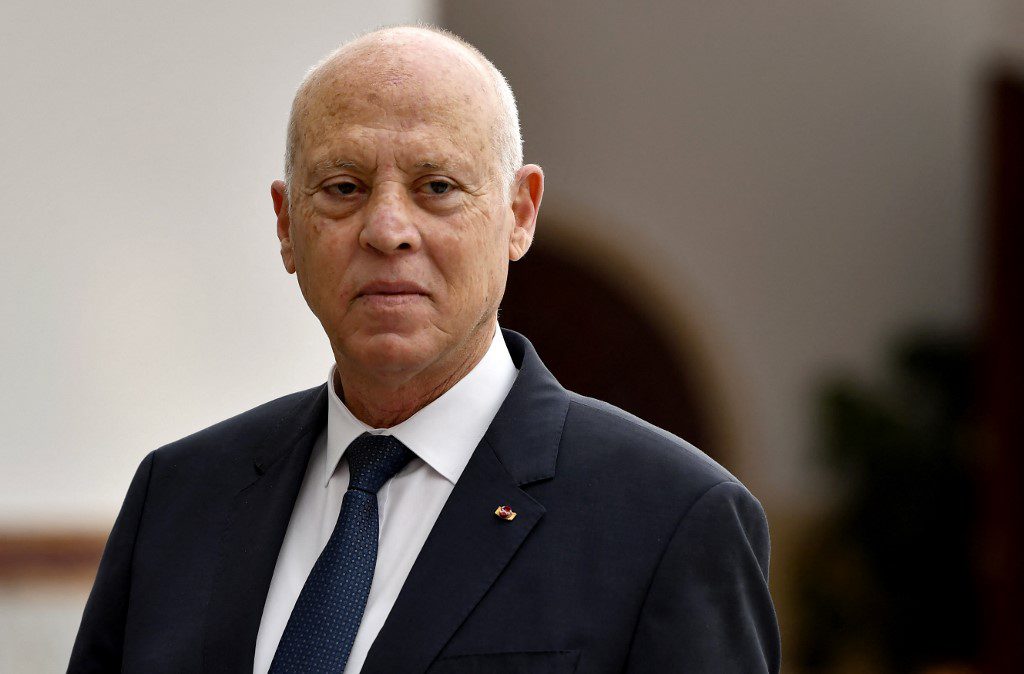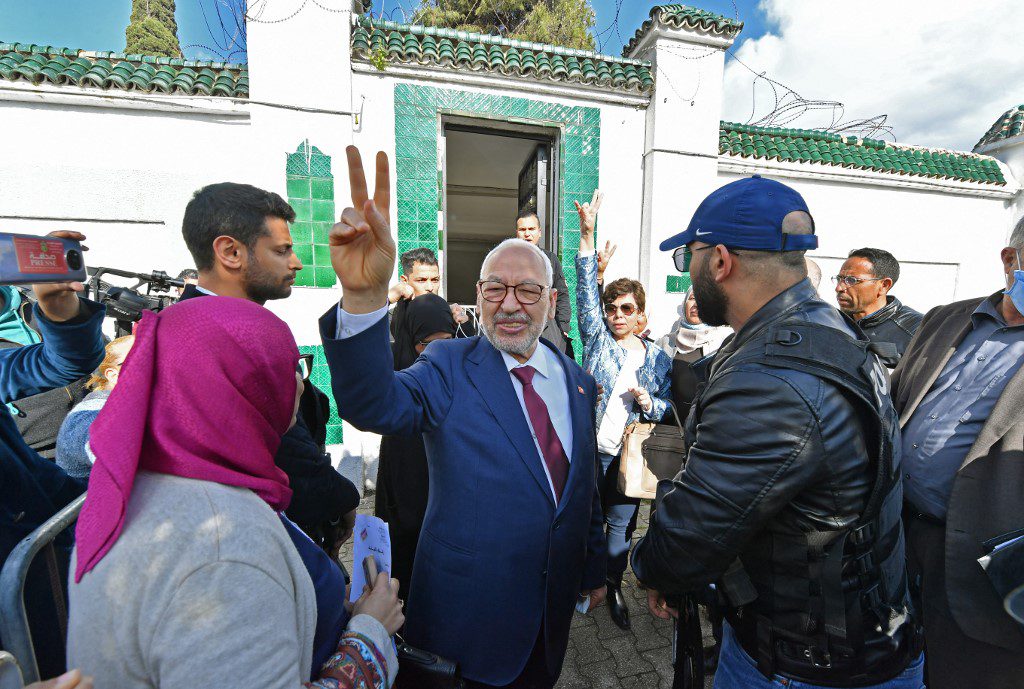Kais Saied continues to be controversial with his personality and unorthodox style of governing.

Ali Al-Ajeel
Since his arrival at the Carthage Palace and obtaining a landslide majority in the presidential elections, constitutional law professor Kais Saied continues to be controversial with his personality and unorthodox style of governing.
Recently, he showed a slight regression in his political rhetoric, especially after declaring his intention to involve everyone in drafting constitutional reforms before submitting them to a referendum. Soon after, Saied returned to issue new presidential decrees that did not seem to deviate from the economic and social policies that Tunisia had adopted since 1986.
The Tunisian president, who sought to involve Tunisians in drafting constitutional reforms, did not receive a sweeping response from the Tunisian street. The digital consultation or the “national consultation” attended by only 500,000 Tunisians reflected the lack of concern of preoccupied citizens with the deterioration of their living and social conditions.
As for the economic-related decrees, Saied considered them “historic steps to restore the dignity of Tunisians and save what has been spoiled during the past years.” However, at best, they preserved the status quo and, at worst, minimised the role of political parties.
Alone at the Top
Since assuming power, Kais Saeed has put the three political forces that traditionally share the political scene under pressure. The Islamic Ennahda Movement and its allies are accused of being responsible for 10 years of crises and reconciliations with the old regime. It may be prosecuted for “external” funding for its election campaign.
The anti-terrorist brigade also summoned 30 members of the party, including the party leader and the speaker of the Parliament, Rached Ghannouchi, for holding a hypothetical session days after the president declared it dissolved.
The parties formed by remnants members of the dissolved Democratic Constitutional Rally of the ousted President Zine el-Abidine Ben Ali are prosecuted for his political and economic corruption. As for the centre-left, radical, and pan-Arabist parties, they appear to be in an unenviable position, as they have shown division and hesitation in their stances regarding the actions of Saied, who did not hesitate to attack them either by hinting or in official statements.
Perhaps the highlight of these decisions is the countermeasures that continued suspending all Parliament’s functions and lifted the immunity from its members. Additionally, all privileges granted to Parliament Speaker Rashid Ghannouchi and the MPs have been lifted.
Even when asked by foreign parties such as the European Union or the United States, Saied claimed he is preparing reforms to the political system to achieve what “the people want.” Nevertheless, when the issue of dialogue with political forces and social and economic organisations is raised, the Tunisian president does not hide his disdain for these parties.
He describes them using labels like corruption, conspiracy, and even treason. President Saied considers the dialogue should be direct with the people. This translates to a consolidation of power without allowing anyone else to share it.
Aborted Hopes

Although Tunisia had never been a major regional player, it has long been considered a beacon of hope for democratic change in the Arab world. It is the only Arab country that exhibits a certain level of democracy, especially when the other Arab states are either engulfed in civil wars or live under a dictatorship.
Most of the problems facing Tunisians today are caused by unfulfilled hopes and promises from the first spark of the revolution to the present day. Most of the presidential decrees were tantamount to arm-twisting against the Tunisian democratic life that the people dreamed of.
Today, Tunisia faces an onslaught of economic and social problems. The coronavirus has increased poverty and unemployment rates, disrupted all economic and investment activities, and affected the low-wage workforce. Furthermore, it caused the state to borrow more than once to pay its employees’ wages.
The country also has a large budget deficit, stifling debt, crippling investments, armies of unemployed people, fires in the afflicted states, and a steady rise in the Multidimensional Poverty Index. Add to all of the aforementioned that corruption and smuggling have been emboldened. When poverty increased, impoverished people from the middle class joined them, illegal businesses flourished, and corruption spread to the executive bodies of the state.
In addition to decrees that do not consider the people’s interests, Tunisians are desperate to achieve a breakthrough in this strange equation to give them new hope for life.
Economic Collapse
The coronavirus accentuated the declining economy in the country. The impact could significantly be felt both nationally and locally. The unemployment rate reached about 18 per cent, according to official statistics.
Economists in Tunisia noted that the state budget deficit had reached a record level. Employees’ salaries are threatened, and austerity policies will begin with the new year. Government support for the poor and middle class will be restricted by limiting subsidies of essential commodities. That is a part of a reform plan the Tunisian government is negotiating with the IMF to finance the national budget.
The biggest economic problem facing Tunisia is tourism, as it is one of the most vital sectors. The pandemic severely affected the economy, mainly since Tunisia has limited resources and requires investment.
The recent developments may further exacerbate the problems of the faltering economy. Since announcing the austerity measures, President Saied’s actions have focused on political and legal issues chiefly to combat corruption. However, it also meant neglecting other social conditions.
President Saied sees this issue as the cornerstone for reviving the economy. He announced the creation of “Citizen Corporates,” civic companies expected to be established across Tunisia. Their job will be to deploy developmental projects beneficial to their local communities prioritised by necessity.
Moreover, they are funded by businessmen as per the “Criminal Conciliation” decree that addresses financial corruption. This decree was conceived by an investigation committee established after the revolution. However, it remained unenforced.
Repercussions of Political Decrees
Samia Hosny and Amira Fathalla, MENA specialists in the BBC Monitoring division, note that the president still enjoys significant public support.
According to Hosny and Fathalla, “Saied came to power with great popular support, receiving more than 72 per cent of votes, reflecting the people’s dissatisfaction with the country’s political establishment.” Saied also “has a large popular base among Tunisian youth who have been disappointed with party politics,” enabling him to pass any decree or decision he wants.
However, the critical problem in the Tunisian political scene is how the president and Parliament are elected by popular vote. The 2019 vote did not allow any party to achieve an absolute majority in the Parliament. Several parties from different political spectrums form a coalition government in this situation. Sometimes, however, they have divergent positions in various fields and political issues.
The clashes between supporters and opponents are still limited so far. Nevertheless, the risk of violence in the coming days is not ruled out, especially after these new decrees.
The problem compounds when the unresolved problem of the House of Representatives is added. As if not enough, President Saeed issued a presidential decree officially dismissing key ministers, including the interior, defence and justice. Saied warned anyone who would incite protests against his decisions, stressing that the armed forces would answer violence with equal measures.
Most experts and analysts of Tunisian politics believe President Saied will change all the game rules in the country. It started by adopting this unconventional method of decision-making.
A method where he is best satisfied when consulting a narrow circle exclusive to the Carthage Palace. Secondly, to transform the political system from a quasi-parliamentary system to an explicit presidential one.
Saied’s supporters on social media are circulating leaks about his project to establish a council rule that some compare to Gaddafi’s “Basic People’s Congress.” This type of governance goes against the 2014 constitution and marginalises the role of parties and civil society organisations.
Saied is likely to rely on a referendum to pass these changes. He can safely bet on it thanks to his popularity, which remains relatively high despite the signs of its erosion and the voices criticising his policies in the media.
The spark of the Arab Spring started here in this country. However, blocking the dialogue between the internal and external forces influencing the Tunisian political scene and Saied consolidating power to himself paint foggy autumn.
Sources:
– تونس.. الرئيس سعيد يصدر مرسوما للصلح الجزائي بين الدولة ورجال أعمال متورطين في قضايا فساد مالي. المصدر:
– تونس.. مجلس النواب يقرر عقد جلستين والرئيس قيس سعيد يهدد باستخدام القوة. المصدر:
– التونسيون يعبرون باللامبالاة.. 6% نسبة المشاركة في الاستشارة الوطنية الرئاسية قبل انتهاء موعدها بأيام. المصدر:
https://www.aljazeera.net/news/politics/2022/3/17/%D8%AA%D9%88%D9%86%D8%B3-50
– رمضان التونسيين: آمال وأحلام و.. مخاوف! المصدر:
– الأزمة الاقتصادية تضيق الخناق على التونسيين. المصدر:


